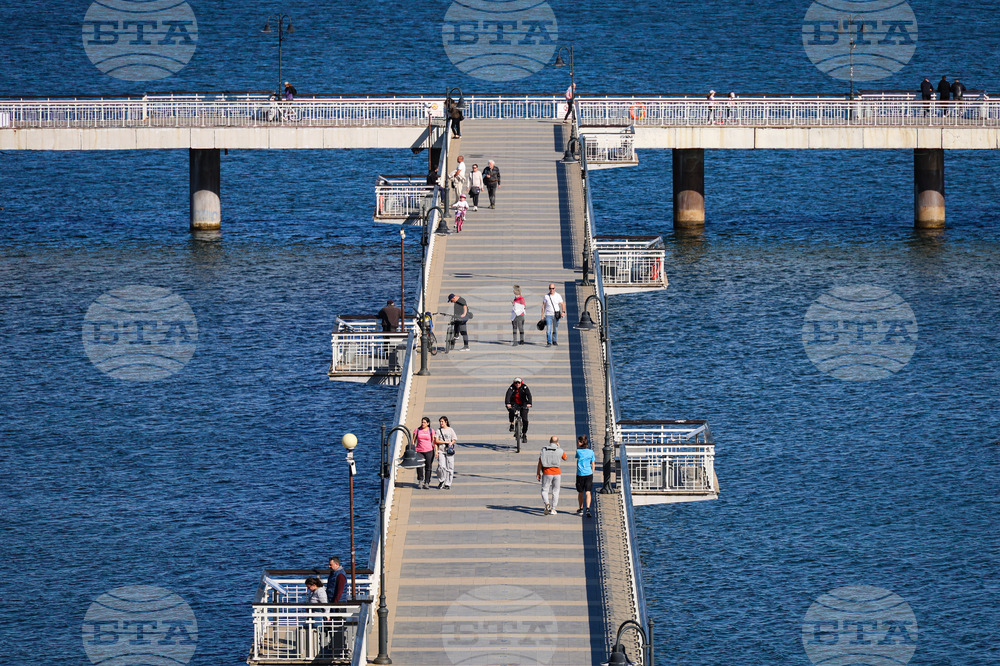site.btaBulgarians Show Limited Willingness to Participate in Early Parliamentary Elections


Bulgarians show limited willingness to go to early parliamentary elections, and political forces maintain similar levels of electoral support. Ruling coalition participants are losing some of their voters, according to a survey conducted by Market Links, published on Wednesday.
The survey is nationally representative. The method of registration is direct personal interviews (80%) and online panels (20%). The sample model is a random selection of settlements and addresses, with quotas in households for direct personal interviews and online panels. The target group is the population over 18 years old. The sample size is 1,010 people. Fieldwork was conducted between April 18 and 30, 2025. The total population is 5,353,000 adults. The funding was provided jointly by Market Links and bTV.
Mobilization for participation in early elections has slightly increased, but the levels, though slightly above the turnout achieved in October, show that Bulgarian society is not ready for a new vote, which suggests a longer horizon for the current government, the analysts note.
Electoral support shows no significant changes compared to the previous month. If elections were held at the end of April 2025, GERB-UDF would receive 21.9% of the vote, Continue the Change - Democratic Bulgaria (CC-DB) would receive 14.9%, and Vazrazhdane would get 11.2%. While there is a slight decline in the number of voters, GERB-UDF remains comfortably ahead of the rest, according to Market Links. While in the last elections, CC-DB and Vazrazhdane achieved almost identical levels of representation in Parliament, the current picture shows a gradual decline in Vazrazhdane's popularity, a more stable presence of CC-DB, with a difference of over 3%, the agency notes.
Movement for Rights and Freedoms (MRF) - New Beginning would receive 11.1% of the vote, BSP-United Left would get 5.6%, MRF - Democracy, Rights and Freedoms would receive 5.4%, Morality, Unity, Honour (MECh) would get 4.5%, Velichie would have 4%, and There Is Such a People (TISP) would have 3.7%, according to the Market Links data.
11% of respondents trust the National Assembly, and 25% trust the government. The government is recovering some of its lost trust, largely influenced by the two unsuccessful votes of no confidence.
According to the data, President Rumen Radev remains the only public figure with more trust than distrust. Trust in him is 47%, while distrust is 31%. The public positions of the Prime Minister and the Parliament Chair, represented by Rosen Zhelyazkov and Nataliya Kiselova, form a specific segment with a relatively more positive, though still negative, rating. Trust in Kiselova is 26%, and distrust is 41%. Trust in Rosen Zhelyazkov is 27%, with distrust at 47%. GERB leader Boyko Borissov occupies a niche between these figures and other political leaders, with a net rating of minus 40%, having 23% trust and 63% distrust. Analysts say that the majority of politicians have negative ratings between minus 51% and minus 56%.
Support for protests held in recent weeks shows a high degree of consolidation around the idea of more radical demands for social change. As expected, protests against the so-called "road war" have broader support (83%), while those against corruption have somewhat weaker support but still show a clear consensus among Bulgarian citizens (71%), the agency reports.
The issue of attitudes toward Bulgaria’s entry into the Eurozone remains particularly important in light of the lack of visible and sustainable institutional and political support and leadership in Bulgarian society. Between a quarter and a third declare support and express positive expectations for one or another of the tested aspects and possible outcomes, with the primary hope being for counteraction against corruption, according to Market Links. They note that a segment in the public consciousness has been formed, which is extremely susceptible to hostile anti-European propaganda, with around 40% of Bulgarians believing there is some truth in the claim that after joining the Eurozone, Bulgarians' savings will be seized and invested in defence.
According to the survey, the prevailing perceptions in society regarding the sanctions under the global Magnitsky Act are viewed as a compensatory mechanism against the inability of Bulgarian institutions to ensure justice and equality before the law. Bulgarian society remains highly vulnerable and receptive to the narratives of Kremlin-backed anti-European propaganda in Bulgaria, the survey data shows.
The trend of worsening evaluations of the country's development, recorded in March, continues. Economic attitudes among Bulgarians are generally cautious, mainly due to increasing uncertainty, now provoked both by the expected Eurozone membership and geopolitical developments, according to the findings. Negative social energy remains a significant factor in shaping the attitudes of Bulgarians, and as seen from the support for protests against the "road war" and "corruption," it may find expression in public demonstrations, the survey concludes.
/RY/
news.modal.header
news.modal.text